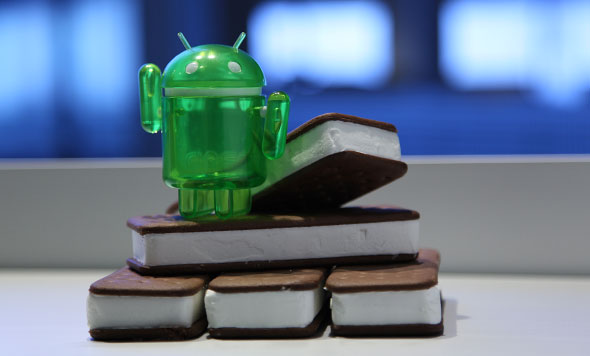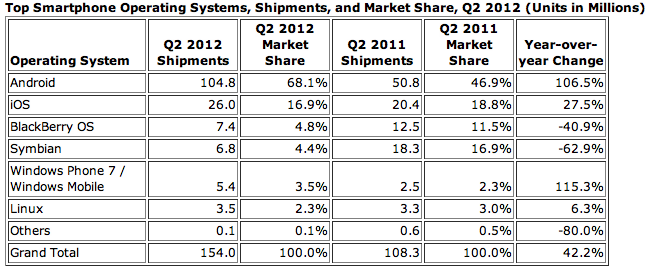Like Henry Ford did, Apple tends to never ask consumers what they want. But contrary to popular belief, the Cupertino firm does believe in market research and regularly polls people in respect to competition and its position in the marketplace. One of such research notes has surfaced today in court documents as we enter the third week of the Apple v. Samsung monster lawsuit.
In it, Apple asks consumers why they chose Android over the iPhone. Turns out regular consumers’ choices have little to do with their love (or hatred) for Apple or Google, with more than four out of ten responding they had gone Android just to stay with their current wireless operator…
Bryan Bishop, writing for The Verge, explains that Apple’s survey dates back to 2010, the year before the iPhone landed on the Verizon network, when it had still been an exclusive AT&T play.
With the survey indicating that 25 percent of overall Android buyers at the time had considered an iPhone, the numbers gives us a real look at just how much the iPhone’s AT&T exclusivity may have hurt it while Android — and Verizon’s Droid brand — surged in the US.
Here’s the full breakdown of the results:
43% Wanted to stay with current provider
36% Trusted Google brand
30% Preferred larger screen
27% Preferred Android Market
26% Wanted better Google services intergration
25% Wanted latest and greatest smartphone
25% Wanted turn-by-turn GPS
25% Wanted latest and greatest technology
If you ask me, Apple’s survey lacks an important choice: “I went with Android because I couldn’t resist my carrier’s BOGO promotion“.
I personally know heck of a lot of Android users who chose the platform just because their carrier spellbound them with a free device.
Also of note, one-third of respondents are all about a larger display on Android phones, which jives well with iDB’s own poll.
Another telling sign: one in four prefer Android due to its richer navigational capabilities, sometimes Apple will address with iOS 6 come this fall. As you know, iOS 6 ditches a Google Maps backend for Apple’s in-house solution which also sports built-in turn-by-turn navigation.
Per IDC, the iPhone and Android phones combined accounted for an astounding 85 percent of all smartphones shipped during the second quarter of this year.
There’s no doubt in my mind that Apple’s decision to cut a multi-year exclusive deal with AT&T had initially limited the iPhone’s performance in the United States.
In hindsight, Steve Jobs believed that Apple had a five-year lead over competition in terms of its mobile operating system. Indeed, the iPhone OS, a slimmed down variant of Mac OS X, was light years away from the crippled stuff found on so-called smartphones in the pre-iPhone era.
Unfortunately, Jobs had failed to anticipate that Eric Schmidt, then Google CEO with a seat on Apple’s board, was cunningly pushing Google into making Android as soon as he had learned about the iPhone project.
If it hadn’t been for Android, the iPhone would have obliterated its competitors and the mobile landscape – or at least the high-end of it – would have exclusively belonged to Apple now.
Steve Jobs’s legendary disdain for carriers is well documented and the above survey just serves to highlight that while Apple owns the user experience on the iPhone, it’s the carriers who Apple must rely on to sell its device to the masses.
Sometimes, and for whatever reasons, Apple’s carrier partners see fit to push Android handsets over the iPhone.
I also have another theory about the Android freight train.
Up until recently, consumers were unable to either afford an iPhone or there was no iPhone-friendly carrier in their area or were unwilling to switch to another telco just to get an iPhone.
We’re talking large numbers of people and many of them have been talked into considering an Android device at the point of sale with an argument that Android offers the closest iPhone experience there is.
That’s not to say that Android lacks qualities of its own – it doesn’t – but Apple’s survey clearly highlights how carriers still have enormous power to derail devices or promote the hell out of them until they become successful.
Care to offer your thoughts about Apple’s survey?



